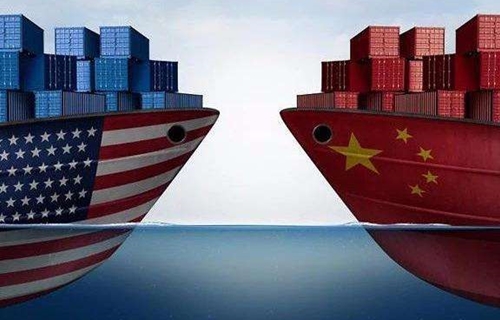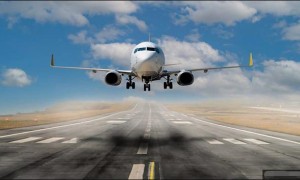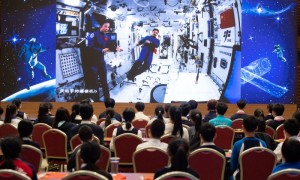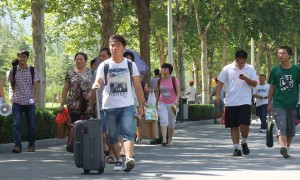访问美国的中国企业高管、游客和学生越来越少,这表明华盛顿和北京之间的贸易战可能以不可预测的更加高昂代价的方式蔓延开来。

Fewer Chinese business executives, tourists and students are visiting the United States, a sign that the trade war between Washington and Beijing might spread in unpredictable and costly ways.
访问美国的中国企业高管、游客和学生越来越少,这表明华盛顿和北京之间的贸易战可能以不可预测的更加高昂代价的方式蔓延开来。
The nascent decline — visible in visa approvals and airline bookings — isn’t the result of official action by Beijing. But it highlights a potent weapon that China could use if the trade war persists: slashing the $60 billion that Chinese consumers spend each year on American services such as travel and tourism.
在签证审批和机票预订方面,这种初露端倪的下降并不是因为中国政府采取了官方行动。但它至少突显出,如果贸易战持续下去,中国可以使用的有力武器:限制美国旅游,大幅削减中国消费者每年在美国旅游等服务上的600亿美元支出。
Already, 102,000 fewer Chinese people received business, leisure and educational visas from May through September of this year compared with the same period last year, a 13 percent drop, according to State Department statistics.
据美国国务院统计数据显示,与去年同期相比,今年5月至9月,接受商务、休闲和教育签证的中国人减少了10.2万人,降幅为13%。
hinese airline reservations to U.S. destinations dropped 42 percent for the first week of October, a national holiday that normally means increased outbound trips, according to Skyscanner, a search engine owned by China’s largest travel company.
据中国最大的旅游公司旗下搜索引擎Skyscanner统计,10月第一周,前往美国目的地的中国航空公司预订率下降42%,而十一黄金周通常意味着出境游的增加。
Unlike merchandise trade, for which President Trump often complains about the large deficit with China, the United States enjoys a sizable services surplus — making such commerce a large and potentially vulnerable target in a lengthy trade war. Since 2011, U.S. services trade with China has grown more than three times as fast as the shipments of goods that Trump usually focuses on.
与商品贸易不同的是,特朗普总统经常抱怨对华贸易出现巨额逆差,而美国享受着相当大的服务顺差——这使得此类贸易成为漫长贸易战中的一个巨大且可能易受攻击的目标。自2011年以来,美国与中国的服务贸易增长速度是特朗普关注的商品贸易的三倍多。







